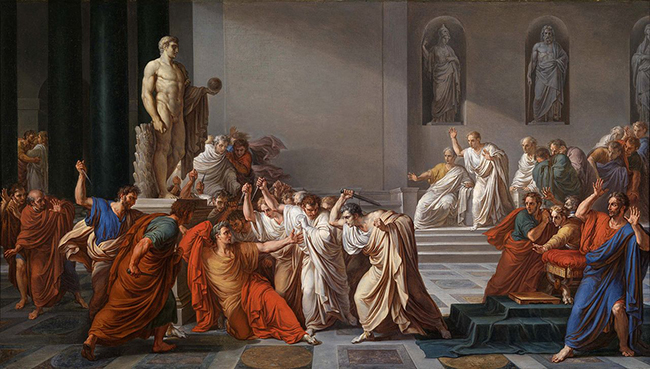Beware the Ides of March
Beware the Ides of March: a warning that would shock the real and literary world a thousand times over and engrain itself into human history. The ring of which can still be heard in the ears of modern readers and scholars of Roman history. What exactly are the Ides of March, and why should we beware them?
The Roman calendar was originally created with only three hundred and fifty five days. However, each month had Ides. These ides traditionally coordinated with the phases of the moon. Each month would have an Ides falling either on the thirteenth or the fifteenth day of the month. Ides were known to Romans as the deadline for settling debts. The Ides that are most famously known is that of March 15th. Traditionally, this day marked the first full moon of the Roman New Year. For many this initiated a time of celebrations, festivals, and political leaders taking office for the coming term.
All of this would change when Julius Caesar added ten more days to the Roman calendar, rounding it out to the traditional three hundred and sixty five. He would also introduce leap years every four years by the adding of ten days. Shortly after changing the calendar, Caesar was given the title “Dictator for Life.” This worried many of the Roman politicians and citizens.
Eventually Caesar would be assassinated by this same group of politicians on March 15th, 44 B.C. Shakespeare would famously write about this event in his play named after Caesar, and the rest is history. The perpetuation of the ideal to beware the Ides of March has lived since the debut of Shakespeare’s play. This is why many have heard the saying “beware the Ides of March,” even if they don’t know what it means. It is a small piece of literary history that has been passed down through the generations as a reminder of Caesar and the downfalls of power and revenge. Historically, for Rome, and many other places around the world, March 15th has signaled some horrible tragedies and historic events. The death of Caesar would signal the beginning of an empire for Rome and a literary superstition for the rest of us.










